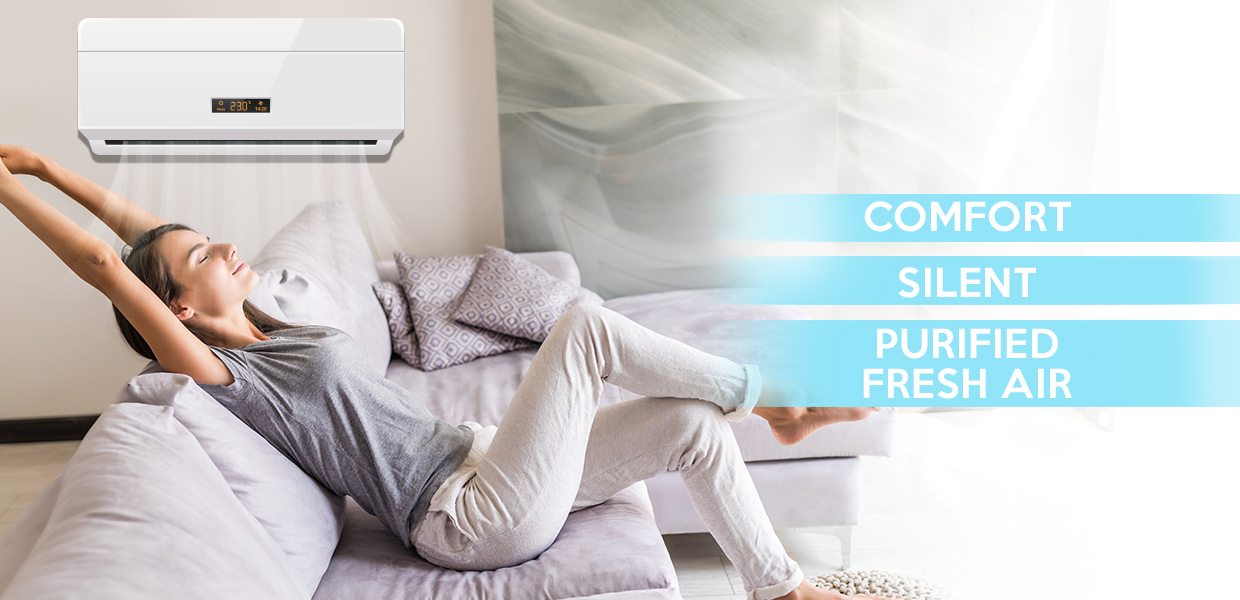Ductless mini split heat pumps have earned a reputation for being energy-efficient, convenient solutions for a variety of applications. They’re ideal when used in a single room or during remodels or conversions when you don’t want to extend your existing ductwork.
As with any major home improvement, you’ll want to weigh the ductless mini split heat pump pros and cons before moving forward with your decision. Here’s a closer look at some of the top considerations that may affect your project:
Pro: Efficient and Quiet
By design, ductless mini splits are energy efficient because they’re not required to heat a whole house. They can turn up the heat in their respective zones faster, while traditional heat pumps have to work a lot harder to provide the same level of comfort.
They’ve also gotten a lot quieter over time. In the earlier years, ductless systems were noisy, but today’s systems use noise-reducing technologies that make them whisper quiet.
Con: No Whole Home Air Comfort
Ductless systems are ideal for one-room applications, but they’re not a match if you want to heat your entire home using one. This simply isn’t what they’re designed to do.If you don’t want the hassle of traditional ductwork, you can opt to get multiple ductless units to provide even heating throughout a home or building. Each unit will have its own thermostat to give you more control over heating costs.
Pro: Impact on the Environment
There are several hidden environmental benefits that come with using ductless mini split heat pumps. Ductless systems pull warm air out of the indoor environment to “recycle” instead of generating all of its heat through a constantly running system. This means the system doesn’t have to work as hard to produce warm air to heat a room.
Ductless systems are also smaller and use less materials in their construction. Many manufacturers are also committed to more sustainable solutions and work toward minimizing their own carbon footprints.
Con: Cost
Even though they’re smaller and quicker to install, a ductless system costs about 30% more than a traditional heat pump. Another thing that can affect the cost is the company installing the equipment. Ductless systems require careful calculations to choose the best indoor unit and location for maximum output at a minimal cost. If you get an oversized unit, it won’t be as efficient because the cycles will be shorter and you end up with wasted energy and inaccurate temperatures.
This is both an art and a science, so it’s important to partner with an installer with experience in ductless systems.
Pro: Improvements on Air Quality and Health
Homes are sealed more tightly than ever, which has created indoor air quality issues for many homes. Ductless systems inherently help to improve indoor air quality because they don’t have ductwork to harbor dirt, bacteria, and other particles that blow through your home.
If you’re rethinking your HVAC system, it’s important to consider the ductless mini split heat pump pros and cons that can help you make the right decision — for your home and your health. Contact the mini split experts at My Mini Split to explore your options!

